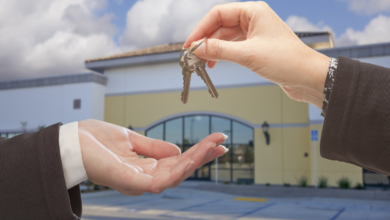Key Ways for LBM Businesses to Use Technology to Adapt to Pandemic Operations
John Maiuri

From forced business closures to supply chain obstacles, the COVID-19 pandemic has directly impacted nearly every industry—the lumber and building materials (LBM) sector being no exception. Businesses have had to remain nimble to survive what has proven to be one of the greatest economic downturns in history, but for small- to medium-sized businesses this is not an easy feat. For these smaller LBM companies who were likely deemed essential at the onset of the COVID-19 outbreak, challenges brought on by the pandemic—like following health and safety guidelines and maintaining revenue streams while minimizing in-store customers—has created an even greater need for adopting technologies that can offer solutions for efficient and effective business functions.
Brad Eiffert is the president of the Boone County Lumber Company, a Missouri-based hardware store specializing in residential and remodeling building materials. During the pandemic, Eiffert was faced with a common challenge: the need to continue serving customers in a retail setting amid local shutdowns. For Boone County Lumber, the answer came in the form of its cloud-based business management solution, Spruce.
“Stay-at-home orders put unusual demands on our work environment,” Eiffert said. “Public access to our office and retail space was restricted, and office occupancy reduction was in the best interest of my employees. Our cloud-based point-of-sale system enabled my employees to seamlessly work remotely from home or while mobile.”
While many have embraced the technology solutions currently available in the LBM industry, there are key ways to use them to embrace the change brought on by tough economic cycles. Here are a few ways LBM business leaders can take their software solution to the next level to recover and adapt to operating during the pandemic:
• Mobile Connectivity: Solutions that offer cloud-based mobile applications give users access to important facets of the business through a variety of internet-accessible devices. Common uses of mobile applications include checking inventory and pulling business data, but LBM businesses have become even more creative in their use of mobile connectivity.
“With access to our point-of-sale system from any internet connection, we can forward phone calls to available team members to perform critical tasks,” said Eiffert. “Many times, our customers are served safely and timely and are unaware they are communicating with someone working remotely.”
This process provided the Boone County Lumber Company with a better way of performing critical day-to-day tasks while assuring the health and safety of vulnerable employees by allowing them to reduce building occupancy without compromise to productivity.
• Business Reporting: Now more than ever, it is extremely important that businesses are keeping a finger on the pulse of their business performance. Whether it be pulling financial reports or managing inventory numbers, all this information must be kept up-to-date and secure. Common practice for business reporting would involve looking back on accounting and sales records and comparing data to previous years, but this process has since adapted as data is stored in the cloud and is integrated directly with business management solutions.
“We no longer store data on site, worry about failed backups or worry about health compromises that could be possible by asking vulnerable employees to come into the office for performing accounting or sales tasks,” said Eiffert. Reoccurring reports can also be automated to populate every month, quarter or year to consistently provide clear insight into the health of the business.
The “winners” in current and future economic cycles are those who are the first to adapt the best technologies and practices. Further, businesses that are innovative in the way they automate processes, streamline operations and embrace mobile solutions access will not only survive, but thrive through economic changes.

As president of the LBM & Hardlines Group at ECI Software Solutions, John Maiuri is responsible for the vision, guidance and strategic growth of his team within the Building and Construction Division. With more than 30 years of experience in the lumber and hardware industry, John understands the importance of leveraging technology to remain competitive.

The Hardware Connection is a digital magazine targeted to independent hardware/home improvement retailers. It is the only industry magazine designed and distributed solely in electronic format and currently reaches over 60,000 people in the two-step channel.
The Hardware Connection publishes four Newsletters each year in addition to eight magazine issues.
To sign up yourself or additional staff to a free subscription to receive The Hardware Connection magazine and newsletter in electronic format, please click here.










